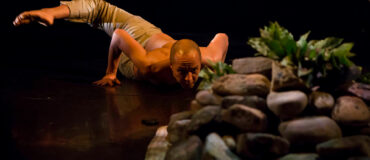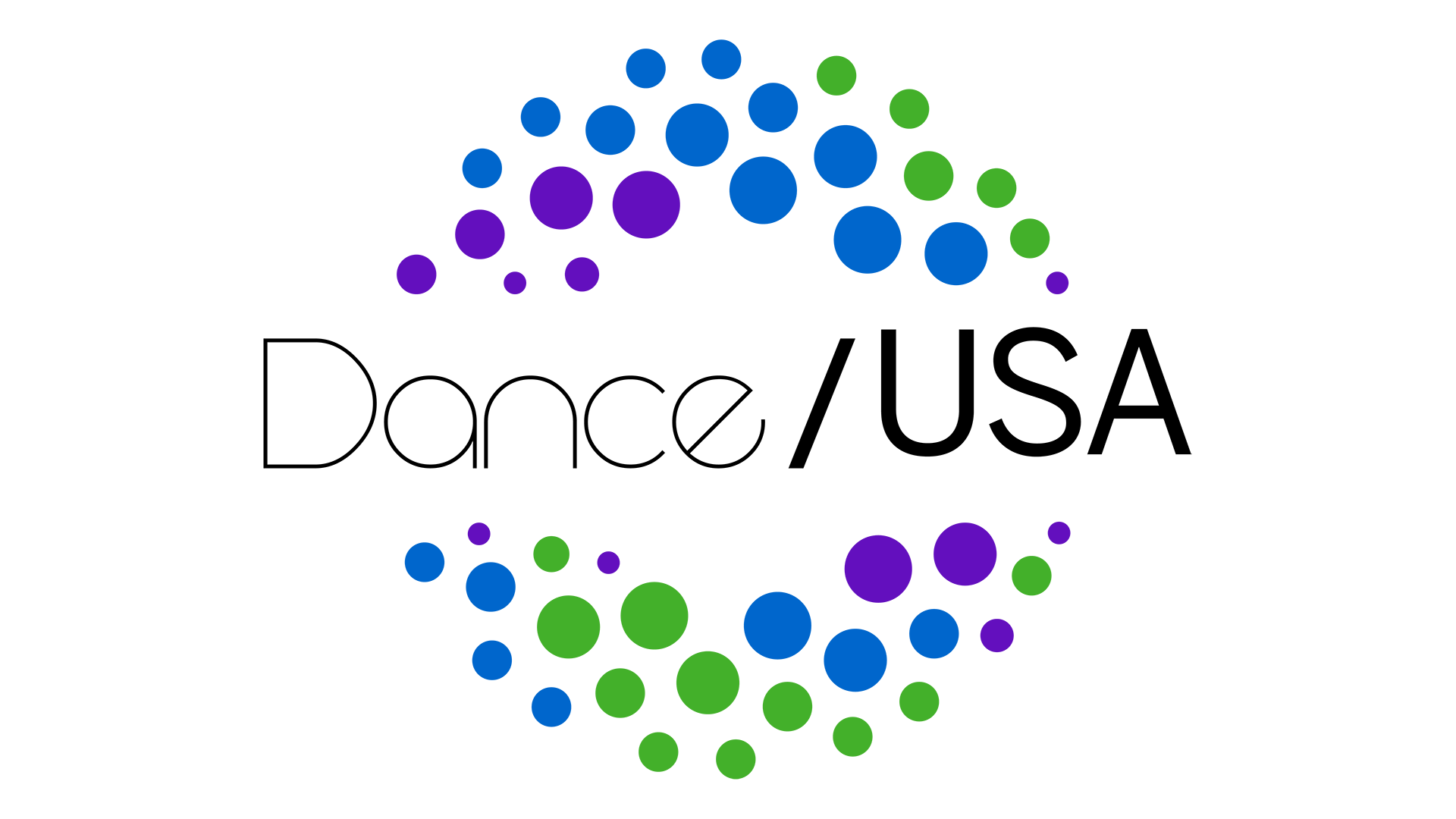Dance/USA’s Opening Plenary Provides Reality Check on Where the Field Stands
By Haley Kostas
Keynote speaker Roberta Uno, theater director, writer, and national arts leader, who is presently director of Arts in a Changing America, a national project on changing demographics and the arts based at the California Institute of the Arts, opened our minds and unlocked our adversities with poetic justice at The Music Center’s Dorothy Chandler Pavilion in downtown Los Angeles, Thursday morning June 7 at Dance/USA’s 2018 Annual Conference.
It was more than anyone could have anticipated. It was a game changer, and a pivotal moment for dance.
Uno’s ability to cut to the core issues affecting the dance world by connecting the cause and effect of political and cultural crises was felt by all; our eyes were opened. Uno doesn’t shy away from the uncomfortable truth: the truth being that our field needs change. Instead she held space and addressed it with brave declaration. From our political gaps, to our lack and need for represented diversity, sustainability, inclusion, and equity for all in the dance community, she staged us toward change. You could say … Uno nailed it.
Opening with acknowledgments and gratitude, Uno gave light to all the “movers and shakers” in the room – providing a snapshot of the conference from dancers to presenters, East Coast to middle America, funders to working mothers, even grant writers and marketers – revealing all the moving parts that matter, and make the art of dance possible. Inviting each group to stand in turn so our work was recognized and celebrated with one another, and by one another.
Uno didn’t give false hope, but stayed with the hard truths, highlighting pathways for the dance industry to come together. Her undeniable hard evidence of visuals, from charts, graphs, and newspaper clips, gave us physical attachment to concrete evidence and allowed us to not only see the holes in our society, but that these holes in America need to be acknowledged in order to be acknowledged in dance. As if this epic plenary couldn’t get more progressive, these hard facts gave no room for alternatives, but held the audience captive, and gave them answers. From government to leading dance organizations, she uncovered the broad span of disconnects in our society that bleed into our dance community. That dance isn’t white, it’s art and art, like race, is not one but many. This reality check of mapping out where we stand, either past or future, is not the change we need in order to meet in the “now” so we may progress forward. And forward in dance is forward in society, which is forward in our world.
Roberta left zero negative space for existence and ability to be denied any longer. Giving no room for allowances, she instead dared us to self-reflect. We can no longer accept “mainstream” and we must challenge the status quo, “changing the era to go beyond what we think we know,” she said, proving that change is insufficient unless it affects the largest as well as the smallest, reminding us that “we have agency, and we have voice” and that the voice of the dance community has the ability to ripple change. Change, which must first start inside, to cause an effect outside, but that we must “go to the source,” said Uno, recalling a Hawaiian proverb, to get there.
Uno’s overwhelming transparency didn’t just spotlight the “voids,” but revealed what will fill them. She shared that there is an absolute need for connectivity across the nation and that it is our duty to connect “parallel universes of artistic production that are not connected with arts resources because cultural values and structures are not connecting.” She continued, “Rather than stack a pyramid with large organizations at the top, the radical act is to advocate with large organizations to subvert the narrative of resource competition and scarcity.” Uno told us that we must create awareness to “question our language,” because terms hold us down: “major institutions” implies that smaller organizations are less than, and “emerging is not thriving.”
Uno referenced Broadway’s hot Hamilton lyric – “the room where it happens.” She asked us to be aware of the rooms we step foot in and to be mindful of the power we hold in those rooms. Even better, we must use those rooms to our advantage to unite our dance community showing again that the smallest changes can cause the biggest effects; and declaring that we WILL fight for “a culture of a shared future.”
Closing out what was a jaw dropping speech of pure honesty and inspiration, Uno expressed love and remembrance of her dear friend Sam Miller and one of her teachers, Pearl Primus, renowned as an ambassador of African dance in the U.S. Uno shared their wisdom that we must all “show up” for ourselves and for each other. From Primus she learned to care for and cradle her feet, for the great African American dance master told her, “your feet plant you on the ground, that is the essence of Africa dance … and we often forget to care of ourselves.”
Uno embodied the essence of change through her movement of words in action by encouraging us to feel seen and heard. She gave us hope and direction on how to achieve a “future America” through our “courage and commitment to create change,” both in the dance community and in the world.
What felt like a movie was a reality of movement toward radical change, that the tough stuff – the deep work needed for the community – gave us common ground and purpose, bringing the audience to their feet for a standing-O, honoring Roberta Uno’s work, which gave us hope for our industry’s future.
What was already an empowering morning, and a tough act to follow soon shook the crowd further, when Christopher K. Morgan, director of Dance Place in Washington, D.C., moved by Uno’s words that acknowledged her Hawaiian heritage, broke into a Hula chant moving with stately focus toward the podium. With strong song. Morgan was an open book of emotions, planting his feet and approaching the stage with unapologetic conviction. We all felt what was happening though we couldn’t tell you what was said. Summarizing his chilling chant, Morgan said, “I have never in 25 years heard hula spoken on stage in a dance forum, until now.” Uno responded in turn with her own chant.… Nothing short of a dance through song, witnessing this cultural tradition was unforgettable. The room opened, the audience was at the mercy of this moment and collectively moved to tears. Morgan and Uno’s vulnerability didn’t just move us, it changed us. Uno’s inspiring words allowed the freedom for Morgan to share his culture openly putting us all “in the room where it happens.”
To watch the entire opening plenary featuring Roberta Uno, please click here.
Haley Kostas is a dancer, choreographer, educator, and writer based in the United States. Haley attended the University of Missouri – Kansas City Conservatory of Music and Dance. She has served as an adjunct professor at the UMKC Dance Conservatory, faculty member at Kansas City Ballet, and has trained in the UK at the London Contemporary Dance School. Haley’s experience and work in concert and commercial dance are represented by Kansas City Ballet, Odyssey Dance Theater, Soulescape, Royal Flux, Flight of the Concords, Katy Perry, Britney Spears, and the feature film DANCE-OFF. Haley is the founder/director of Defy Dance Project, writer of Off Center Words e-journal, and is currently creating new works along with working alongside the Barton sisters, Cherice and Charissa, on the development of BartonMovement.
____
We accept submissions on topics relevant to the field: advocacy, artistic issues, arts policy, community building, development, employment, engagement, touring, and other topics that deal with the business of dance. We cannot publish criticism, single-company season announcements, and single-company or single artist profiles. Additionally, we welcome feedback on articles. If you have a topic that you would like to see addressed or feedback, please contact communications@danceusa.org.
Disclaimer: Opinions expressed in guest posts do not necessarily represent the viewpoints of Dance/USA.




